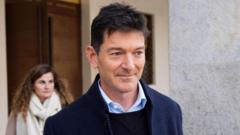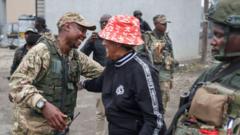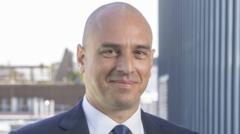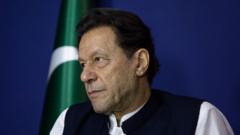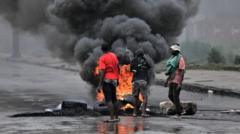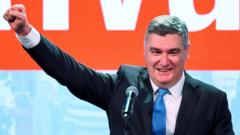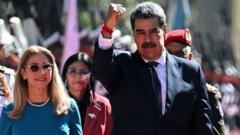Isabel dos Santos, the daughter of Angola's former president, has expressed her discontent with the UK government's recent sanctions against her, labeling them a political maneuver. Facing accusations of high-level corruption and embezzlement, dos Santos contends that she has never been convicted of any wrongdoing and asserts her contributions to Angola's economy.
Isabel dos Santos Challenges UK Sanctions Amid Corruption Allegations
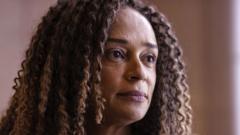
Isabel dos Santos Challenges UK Sanctions Amid Corruption Allegations
The Angolan business mogul defends herself against UK allegations of embezzlement, claiming a lack of due process and political motives behind the sanctions.
Isabel dos Santos, once recognized as "Africa's richest woman," has openly criticized the United Kingdom's decision to impose sanctions on her. Speaking to the BBC, she expressed her astonishment at the UK's move, stating that she has not been found guilty of corruption in any legal jurisdiction. The UK government recently labeled her a "notorious kleptocrat," resulting in an asset freeze and a travel ban, due to allegations linking her to the embezzlement of substantial funds from Angola.
Dos Santos, 51, suggested that these actions stem from a campaign orchestrated by the Angolan government to damage her public image. "It’s political at the end of the day," she argued during her interview on the BBC Africa Daily podcast, emphasizing that there was no inquiry or opportunity for her to present evidence in her defense.
The sanctions were announced by UK Foreign Secretary David Lammy, who articulated a broader government initiative aimed at combating "dirty money." A statement from the UK alleged that dos Santos had "systematically abused" her roles in state-owned enterprises, siphoning off at least £350 million (approximately $442 million), which they claim deprived Angola of vital resources for development.
In response, Angola’s attorney-general clarified that their investigations are not politically motivated and are grounded in tangible evidence of alleged criminal activity. Furthermore, they remarked that dos Santos has several accusations against her, necessitating her defense.
According to the British foreign office's policies under the Global Anti-Corruption Sanctions Regulations, such designations can occur if there are "reasonable grounds" to suspect involvement in serious corruption. They also reassured that sanctioned individuals can request a review of their designation.
The allegations against dos Santos emerged prominently in 2020, following a BBC Panorama investigation that unveiled leaked documents shared with the International Consortium of Investigative Journalists. This investigative piece, known as "Luanda Leaks," raised concerns regarding deals executed through London-based companies linked to dos Santos.
Educated at prestigious UK schools during Angola's civil war, dos Santos graduated from King’s College London as an electrical engineer. Initially working in Europe, she pivoted to entrepreneurship upon her return to Angola, creating a vast business empire that includes telecommunications, banking, and various industries. She reached Forbes' billionaire list just before turning 40, highlighting her status as a significant job creator and taxpayer in Angola.
Dos Santos was placed in charge of the troubled state oil firm Sonangol in 2016, a move that faced criticism yet was upheld by the Supreme Court. She was ousted by President Joao Lourenço in 2017, who has since pursued anti-corruption measures that have reportedly targeted her family’s assets.
Voicing her frustrations, dos Santos noted that despite her assets being frozen for five years, the matter has not yet progressed to court—a delay she finds unjust given typical civil case timelines. She alleges these legal troubles stem from falsified documents, including those supposedly used for the asset freeze.
In light of the challenges she has faced, including the loss of her husband and father, dos Santos desires to present her perspective to dispel the "misconceptions" surrounding her narrative. When questioned about a potential political career, she stated that serving her country in various capacities remains important to her, reiterating her commitment to serve Angola "whether it's in politics, or whether it's in business, or philanthropy, or culture."

